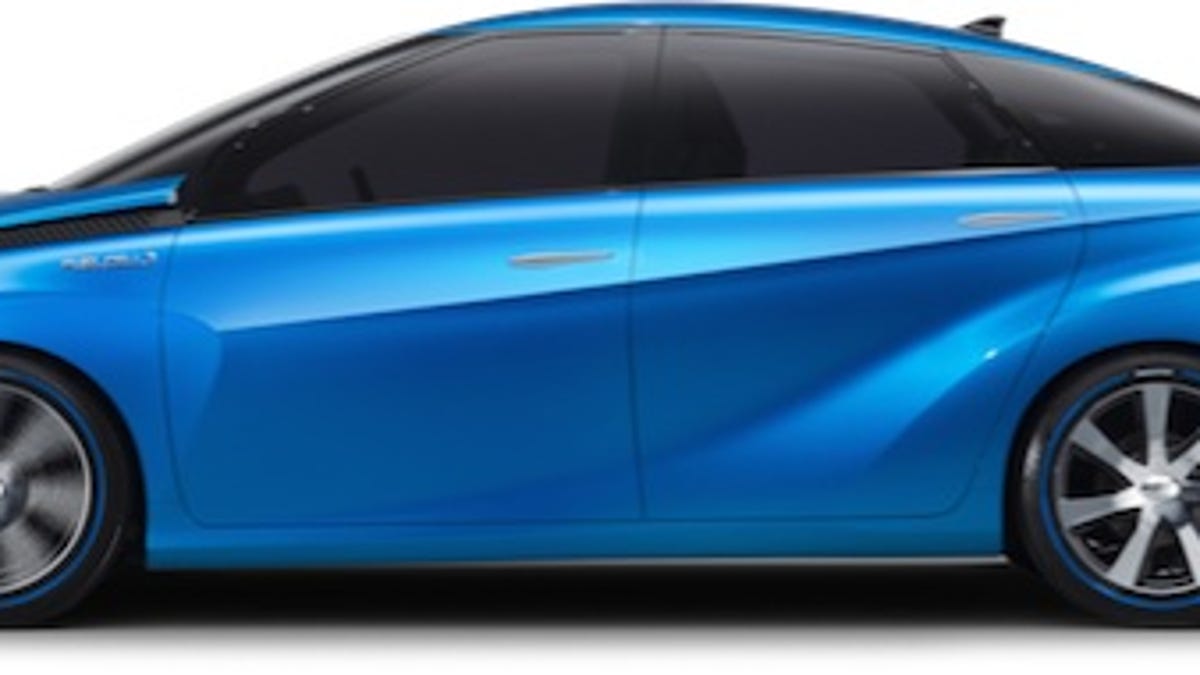Japan putting 'full weight' of government behind fuel-cell vehicles
The Japanese government is getting behind fuel-cell vehicles in a big way. This follows recent comments from a Toyota executive that battery-powered cars are not the future of long-range alternative fuel cars.

Japan is getting serious about commercial fuel-cell cars.
The Japanese government is "putting its full weight behind the promotion of fuel-cell vehicles" with Toyota eying commercialization of a fuel-cell car this fiscal year "ahead of any other company," according to Nikkei, Japan's largest business daily.
The Ministry of Economy, Trade and Industry will relax regulations on fuel tanks, allowing hydrogen tanks to be filled to a "maximum pressure of 875 atmospheres, up from about 700 now," Nikkei reported. This will extend fuel-cell vehicles range by about 20 percent without refueling.
Fuel-cell cars in Japan currently number only in the dozens. And those are strictly experimental.
Toyota's upcoming fuel-cell vehicle will have a range of 600km (about 373 miles), making it possible to travel from Tokyo to Osaka without refueling, the report said.
Toyota's development efforts are now aimed at mass production of fuel-cell cars and the company is planning to do so during the current fiscal year ending March 2015. Honda's fuel-cell cars should be available to consumers in 2015, Nikkei said.
In a fuel cell stack, hydrogen combines with oxygen to produce electricity that powers the vehicle.
Jim Lentz, CEO of Toyota's North American region, recently told Automotive News that battery-electric vehicles are viable only in "a select way, in short-range vehicles that take you that extra mile...But for long-range travel primary vehicles, we feel there are better alternatives, such as hybrids and plug-in hybrids, and tomorrow with fuel cells."
General Motors, for its part, has a fleet of hydrogen fuel-cell vehicles and is working with Honda to accelerate the development of hydrogen fuel-cell powertrain technology. GM has mentioned the 2015-2020 timeframe for release to the public.
US-based Tesla, by contrast, is placing its bets on battery-powered all-electric cars and helping to build a cross-country recharging infrastructure.
Update: The US Department of Energy announced its latest round of funding for technology dedicated to advancing hydrogen fuel cell vehicle development, according to Autoblog. Most recipients of funding were from the California, which has been the focus of US hydrogen fuel-cell vehicle advancement. Six projects will receive a combined $7 million in funding.
Prior to this, the California Energy Commission awarded a $27.6-million grant to FirstElement Fuel to build a network of 19 hydrogen stations throughout the state, Autoblog said.

